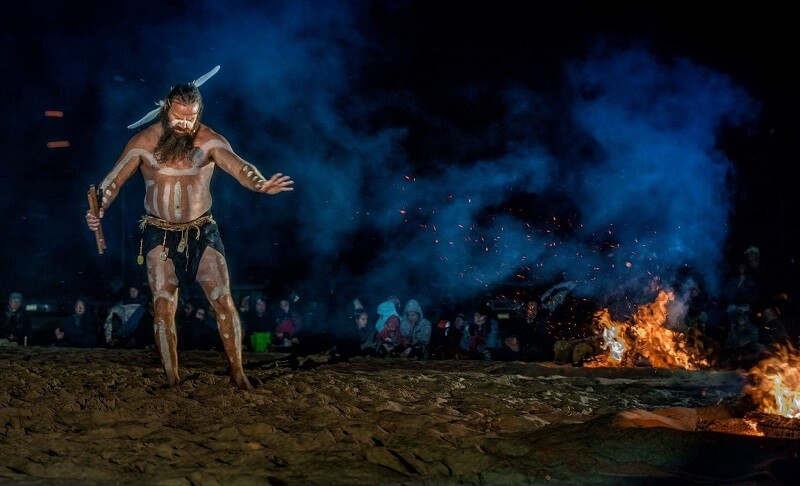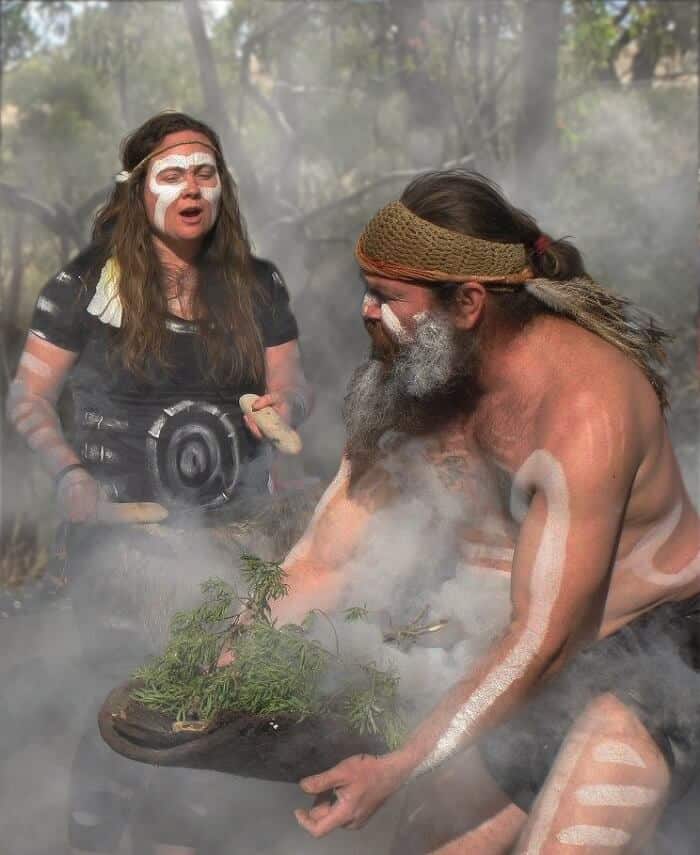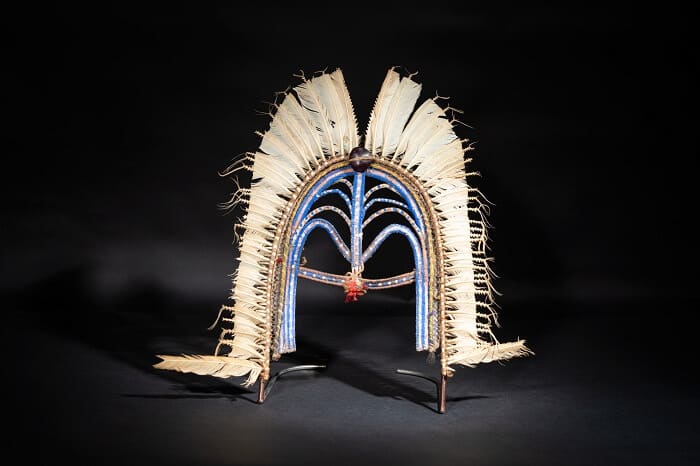Through rigorous research and creative and cultural consultation, this exhibition entitled ‘Unsettled: Our untold history revealed’ calls out Australia’s deceptive historical representations of colonisation, and in turn posits a significant marker for change on the history of this nation.
‘Unsettled’ is on view at the newly renovated Australian Museum in Sydney, until 10 October. As the title states, this exhibition reveals the truth behind Australia’s untold history – it confronts the uncomfortable tales of our existence and brings some of the most horrific events from the past into focus with new explanations of the truth, and we need to listen.

Curated by Laura McBride and Dr Mariko Smith, ‘Unsettled’ brings First Nations voices together with imagery, objects and Aboriginal cultural artefacts, which have been selected from the Australian Museum’s collection, artist commissions, acquisitions, and loans from the NSW State Archives, and the State Library of New South Wales. The exhibition includes archival notes that redefine history and challenge our understanding of what we’ve been told took place in 1788. Find out about ‘The Barunga Statement’ and read and reflect on the ‘Uluru Statement from the Heart’, which are all on display among contemporary artworks presented by artists including Ryan Presley, Tony Albert, Charlotte Allingham (Coffin Birth), Jai Darby and Danie Mellor, and others.
From, Cook’s falsified declarations of a new and uninhabited land, to the murder, massacre and genocide of Aboriginal people and their families, the outright theft of Aboriginal children, and the desecration of Indigenous languages, laws and cultural traditions, this exhibition supersedes its aim to educate audiences with more truthful knowledge about the wrongs of the past, with a solid punch that you can’t brush off.
You won’t walk away from the experience of this show without a sense of understanding; the intense pain and sorrow that Aboriginal people have endured since 1788; the deep connection and respect for culture and Country they have; the fortitude of their personal and collective strengths and resilience, and the challenges they face in the ongoing fight for reconciliation, a better future, and for what is right.
The animated short film Kinchela Boys, narrated by survivors of the NSW Government run training home for Aboriginal boys, which operated for almost five decades between 1924-1970, strikes a gut-wrenching chord within. Young boys some not even school age, stolen from their families. These now brave and resilient men tell the heartbreaking stories of their childhood, the abuse they suffered, the conditions in which they lived, and the impact it has had on their adult lives. It is stories like these, and there are many, that testify to the continuous effects of colonisation on Aboriginal people today.

“Our contact history cannot be sanitised. It has to be told with a high degree of integrity, and as confronting as it might be, teaching about it has nothing to do with provoking a sense of guilt; it is largely about shared responsibility and transparency in order to move forward as a modern nation.” – Uncle Shane Williams, Dharawal Elder, 2020.
Genevieve Stewart a Kuku Yalani artist explores agency and self-determination in Weaving Woman (2020), an artwork which is presented both as an ink on paper and a short-film animation whereby the artist enacts the practice of weaving, a traditional artform once forbidden to be taught to her. Stewart weaves an intricate depiction of herself, as a ritual for healing, connection to culture and nurturing her confidence and identity.
In the above mentioned works Kinchela Boys and Weaving Woman alone, we witness the gravity of personal, cultural and familial loss for First Nations people. ‘Unsettled: Our untold history revealed’ invites audiences to hear the stories, listen deeply, feel, and recognise that we can all be part of making positive change. Take time at the end of the exhibition in the space ‘Winhangadurinya: Deep listening/ reflecting / meditation’ designed and created by Milan Dhiiyaan to “spend some time in the cultural practice of deep listening and to reflect upon the effects of invasion and genocide. These events have both historical and continuing impacts on all Australians. In the Winhangadurinya space, Ancestors, Country and First Nations community provide inspiration and guidance towards a rebirthing of Australia. This rebirthing may emerge on individual or collective levels, by making an informed and conscious choice to come into Country the right way.”

Public program of talks, tours and workshops – Bookings Here
3 July and 7 August, 1 to 3pm: Weaving: Ngumpie Weaving – Cultural practitioner Tegan Murdock from Ngumpie Weaving shares her passion and culture in this hands-on weaving workshop for all skill levels. 10 , 11, 17 and 18 July from 10.30am to 1pm and 2pm to 4.30pm: Barrawimambinya: Coming into Country the Proper Way develop a deeper understanding of ‘Welcome to Country’ and ‘Acknowledgement of Country. 17 July at 1pm: Talk Series: No Justice No Peace -uncover the history of policing and incarceration of First Nations peoples in this country and how these injustices continue today. Opens with a poetry reading by Ngarrindjeri and Kaurna person, Dominic Guerrera.
22 July and 26 August from 8-9.30am: visitors can participate in Breakfast with a Curator and join Dr Mariko Smith for an exclusive tour and discussion of ‘Unsettled’ before the Museum opens to the public. Followed by a light breakfast made with Indigenous ingredients. 4 September from 1pm to 3pm: Healing through Weaving – Kurrajong String and Flower – learn weaving and string-making techniques and their cultural significance with Ngiyampaa Elder Aunty Daniella Chedzey. Beginner and experienced weavers. 11 and 12 September from 10.30am to 1pm and 2pm to 4.30pm – Winhangadurinya: Aboriginal Meditation: Winhangadurinya is a Wiradyuri word for meditation, deep listening, knowing, reflecting.
The Australian Museum advises “that there are some confronting topics addressed in this exhibition, including massacres and genocide. Aboriginal and Torres Strait Islander peoples should be advised that there may be images of people who have passed away.”
The Australian Museum is open daily from 10am to 5pm. General admission is free and includes entry to ‘Unsettled: Our untold history revealed’, until 10 October.